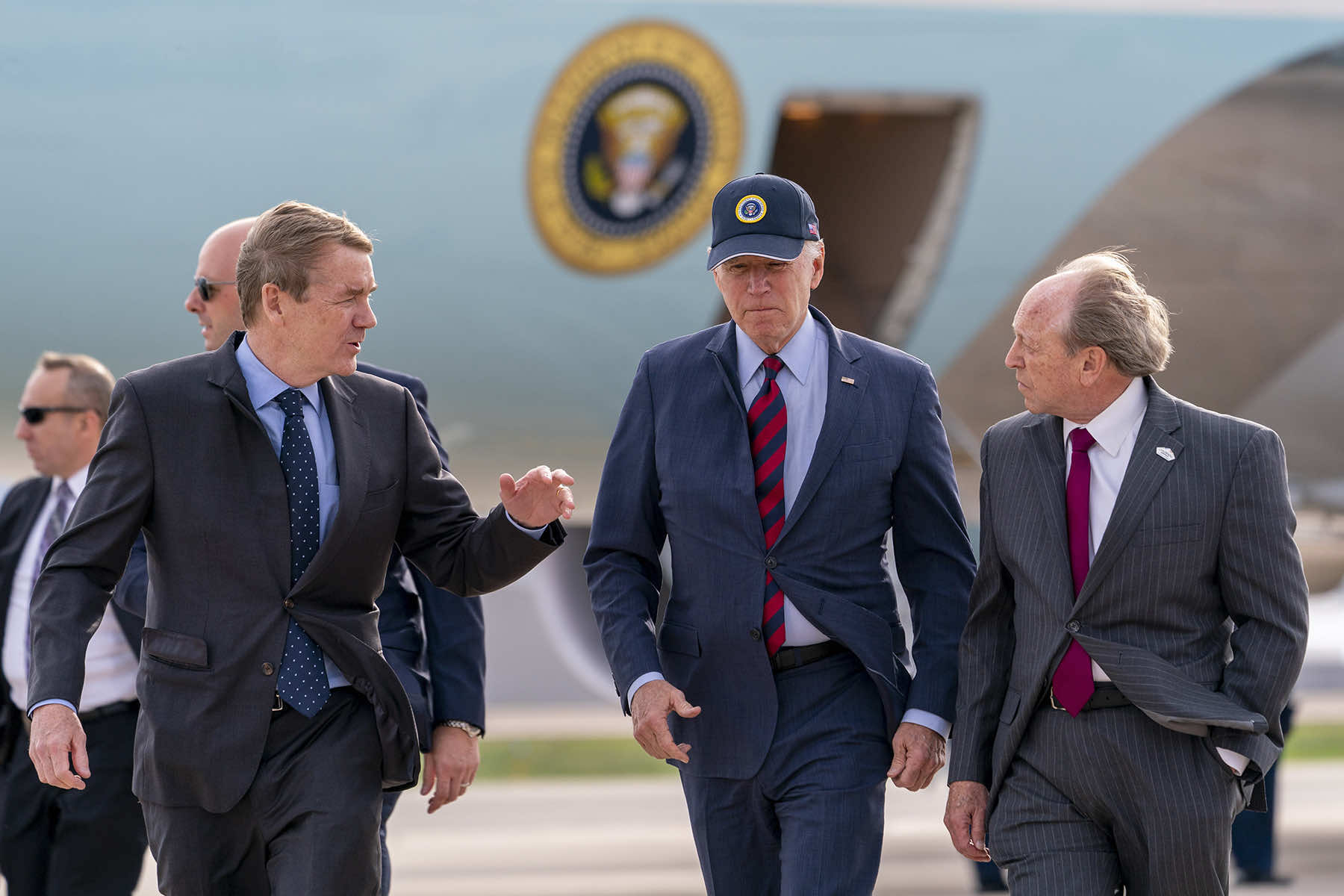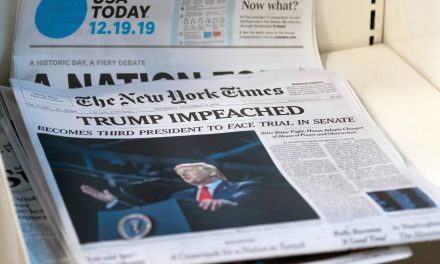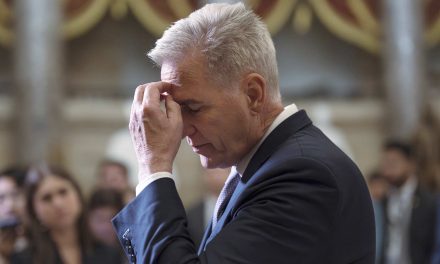
Three years ago on June 2, 2020, days after then–Minneapolis police officer Derek Chauvin murdered George Floyd by kneeling on his neck for nearly nine minutes, Martha Raddatz of ABC snapped the famous and chilling photograph of law enforcement officers in camouflage, their names and units hidden, standing in rows on the steps of the Lincoln Memorial.
Floyd’s murder sparked protests across the country, and Trump used those protests as a pretext to crack down on his opponents. Just the day before, after a call with Russian president Vladimir Putin, Trump told state governors on a phone call:
“You have to dominate. If you don’t dominate, you’re wasting your time … You’ve got to arrest people, you have to track people, you have to put them in jail for 10 years and you’ll never see this stuff again.”
Then he used a massive police presence wielding tear gas, rubber bullets, and flash-bang explosives to clear peaceful Black Lives Matter protesters from Lafayette Square across from the White House.
President Joe Biden addressed the nation from the Oval Office on June 2 to emphasize that democracy depends on bipartisanship.
“[W]hen I ran for President. I was told the days of bipartisanship were over and that Democrats and Republicans could no longer work together. But I refused to believe that, because America can never give in to that way of thinking … [T]he only way American democracy can function is through compromise and consensus, and that’s what I worked to do as your President … to forge a bipartisan agreement where it’s possible and where it’s needed.”
While he noted that he has signed more than 350 bipartisan laws in his time in office, his major focus today was on the bipartisan budget agreement passed by the House and Senate after months of wrangling to get House Republicans to agree to lift the debt ceiling. Biden will sign it tomorrow, averting the nation’s first-ever default.
Biden characterized those threatening to force the U.S. into default as “extreme voices,” who were willing to cause a catastrophe. The economy, which continues to add jobs at a cracking pace — another 339,000 in May, according to the numbers released on June 2 by the U.S. Bureau of Labor — would have been thrown into recession. As many as 8 million Americans would have lost their jobs, retirement savings would have been decimated, borrowing for everything from mortgages to government funding would have become much more expensive, and “America’s standing as the most trusted, reliable financial partner in the world would have been shattered.”
“It would have taken years to climb out of that hole,” he said.
But the extremists were sidelined, and the House Republicans and the White House reached an agreement. Biden went out of his way to praise House speaker Kevin McCarthy (R-CA) and his team, saying that the two negotiating teams “were able to get along and get things done. We were straightforward with one another, completely honest with one another, and respectful with one another. Both sides operated in good faith. Both sides kept their word.”
This was not entirely true — McCarthy constantly attacked Biden in the media — but Biden was hammering on the image of bipartisanship. Jonathan Lemire, Adam Cancryn, and Jennifer Haberkorn of Politico reported that Biden and his team plan to make the case for reelection on their ability to negotiate deals that get things done for the American people, acting as the “adults in the room” in contrast to Republican extremists. The budget deal that led to the suspension of the debt ceiling is a major illustration of that position.
Biden also praised House minority leader Hakeem Jeffries (D-NY), Senate majority leader Chuck Schumer (D-NY), and Senate minority leader Mitch McConnell (R-KY), claiming that “[t]hey acted responsibly and put the good of the country ahead of politics.”
The solution to the debt ceiling crisis is a major victory for Biden’s team not only because it happened, but also because it leaves Biden’s key priorities intact, not least because they are popular and Republicans did not want to go into 2024 having demanded unpopular cuts.
Biden noted that the measure will cut spending as Republicans wanted (although not necessarily through the measures they insisted on adding), but reiterated that it is the Republican Party that has been on a spending spree. “We’re all on a much more fiscally responsible course than the one I inherited when I took office,” Biden said. “When I came to office, the deficit had increased every year the previous four years. And nearly $8 trillion was added to the national debt in the last administration,” while the deficit fell by $1.7 trillion in his first two years in office.
Biden laid out that the deal protects his reworking of the U.S. economy to support ordinary Americans. It protects Social Security and Medicare, as well as healthcare and veterans’ services. It protects the investments in the economy that have enabled the country to add more than 13 million new jobs, including 800,000 jobs in manufacturing. It protects investments in addressing climate change.
Finally, Biden vowed to make the wealthy — those who earn more than $400,000 a year — pay their fair share in taxes.
“I know bipartisanship is hard and unity is hard,” he concluded, “but we can never stop trying, because in moments like this one — the ones we just faced, where the American economy and the world economy is at risk of collapsing — there is no other way.
“No matter how tough our politics gets, we need to see each other not as adversaries, but as fellow Americans. Treat each other with dignity and respect. To join forces as Americans to stop shouting, lower the temperature, and work together to pursue progress, secure prosperity, and keep the promise of America for everybody.”
What a difference three years can make.
Andrew Harnik (AP)
Letters from an Аmerican is a daily email newsletter written by Heather Cox Richardson, about the history behind today’s politics













